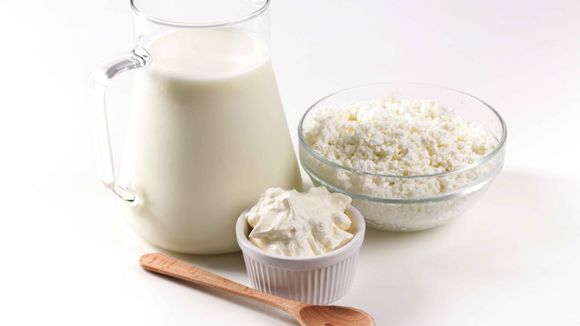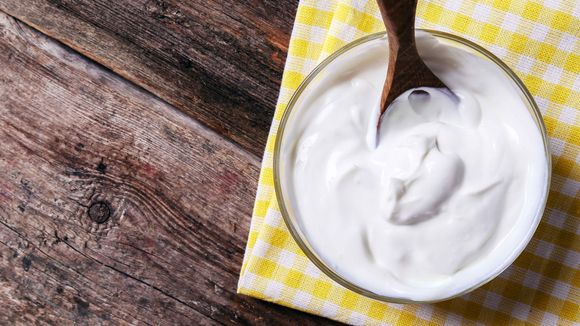A Brief History of Bulgarian Yoghurt
In the early 20th century, the famous Russian Nobel Prize-winning scientist Ilya Mechnikov (1845-1916), working at the Pasteur Institute in Paris, began research on the causes of human aging. He found that during meals, protein substances in food are broken down under the action of putrefactive intestinal bacteria, which cause poisoning of the body and early death.
He proved that the only food that could limit the development of putrefactive bacteria in the intestines is Bulgarian yoghurt, which explains the largest number of healthy centenarians in Bulgaria.
During the biological studies of Ilya Mechnikov, the Bulgarian physician Mr. Stamen Grigorov, a medical student in his fourth academic year at the University of Geneva, undertook a study of Bulgarian yoghurt and found that the reasons for fermentation were one rod-like and one spherical bacterium. The report of his discovery was published in the "Revue Medicale De La Suisse Romande" issue 10 of 20.10.1905, Geneva. [ref. 1]
So, the beginning of extensive research on the role of Bulgarian yoghurt as a product with unique nutritional, dietary and healing properties was set with the discovery of Dr. Stamen Grigorov and Ilya Mechnikov's theory of the relationship between the increased life expectancy of Bulgarians and the consumption of yogurt. Hundreds of subsequent studies have confirmed the health benefits of yogurt.
In particular, Lactobacillus bulgaricus has been found to have a strong antimicrobial effect and ability to form colonies in the human intestine. The same bacterium produces an antimicrobial factor (a substance similar to antibiotics) known as "bulgarican". Other studies have been devoted to the effects of yogurt microflora on cholesterol. [ref. 2] Consumption of yogurt has been found to reduce cholesterol levels. [ref. 3]
Health benefits and composition of yogurt
Yogurt can be high in protein, calcium, vitamins, and live culture, or probiotics, which can improve the gut microbiota. In this way, the body's immune defense is also improved, which means improved counteraction to pathogenic microorganisms.
In addition, yogurt is a useful food for bones and teeth and helps prevent digestive problems.
According to the scientific publication "Traditional Bulgarian Dairy Products: Ethnic Foods with Health Benefits", "yogurt is considered a nutrient-rich food that significantly contributes to the intake of macro- and micronutrients, especially calcium and protein. Yogurt is a source of iodine, potassium, phosphorus and vitamins: the water-soluble riboflavin (B2) and cobalamin (B12) and fat-soluble vitamin D." [ref. 4]
In terms of different bacteria, the most common lactobacilli in Bulgarian yoghurt are L. helveticus, Lacticaseibacillus paracasei, Limosilactobacillus fermentum and Lacticaseibacillus rhamnosus. Several strains of Leuconostoc mesenteroides, Leuc. pseudomesenteroides and Weissella confusa were also isolated from yogurt.
In addition, among the most important healthy components of dairy products, including yogurt, are bioactive peptides with various functions, fatty acids (γ-aminobutyric acid, conjugated linoleic acid), lactic acid and exopolysaccharides. All these compounds have immunomodulatory, antihypertensive, antitumor or anticancer activity, as well as antimicrobial, antioxidant and mineral-binding properties. [ref. 5]
No less important for health are the prebiotics contained in yogurt. These are galactooligosaccharides (GOS) and other milk oligosaccharides (MO), whose main role is to selectively support the development of useful microflora in the gastrointestinal system.
Other types of yogurt
Low-fat and skimmed milk
Low-fat yogurt is usually made with 2% milk. Skim yogurt is made with zero percent or skim milk.
Kefir

Kefir is a liquid yogurt to drink. It contains probiotics and is easy to prepare at home by adding kefir grains to the milk and letting it stand for 12 to 24 hours.
Greek yogurt

Greek yogurt is thick and creamy. It can withstand heat more than regular yogurt and is often used in the Mediterranean cooking style. It is made by further straining the ordinary yogurt to remove the liquid whey.
The result is a higher protein content due to its denser concentration, but additional straining results in a lower calcium content.
Skir
Like Greek yogurt, skyr, pronounced "skir", is an Icelandic-style yogurt that is dense, creamy and high in protein. Compared to regular yogurt, skir requires 4 times more milk to make it and contains 2 to 3 times more protein.
Yogurt and lactose intolerance
Yogurt is low in lactose, so a person with lactose intolerance is likely to be well received. It also contains bacteria that aid digestion. If you have this health problem, try plain Bulgarian yogurt and see how the body reacts. This applies only to people with lactose intolerance, and not to those with cow's milk allergy.
People with lactose intolerance are often deficient in calcium, so yogurt can be an important component of the diet to provide the mineral.









